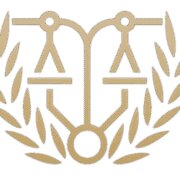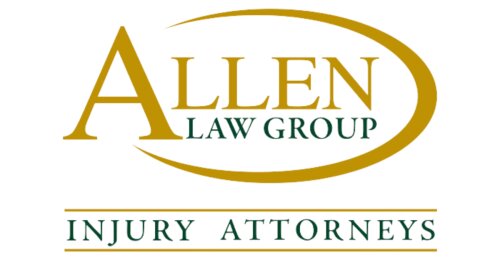Best Lawsuits & Disputes Lawyers in Illinois
Share your needs with us, get contacted by law firms.
Free. Takes 2 min.
Or refine your search by selecting a city:
List of the best lawyers in Illinois, United States

About Lawsuits & Disputes Law in Illinois, United States
The field of lawsuits and disputes in Illinois refers to the legal processes used to resolve disagreements between individuals, businesses, organizations, or government entities. These disputes can arise from contracts, property ownership, employment relationships, injuries, and many other circumstances. In Illinois, civil courts handle a wide range of lawsuits, and the law provides structured procedures for bringing and resolving claims, including both informal negotiation and formal litigation. Lawsuits can be resolved at any time through settlement or may proceed through trial and appeal stages.
Why You May Need a Lawyer
There are many situations where individuals and businesses in Illinois may need assistance from a lawyer experienced in lawsuits and disputes. Common scenarios include:
- You are being sued or served with court papers related to a dispute.
- You believe someone has breached a contract or agreement with you.
- You are involved in a property or landlord-tenant conflict.
- You have suffered an injury or harm and want to pursue a legal claim.
- You need to collect a debt or defend against debt collection efforts.
- You are facing business-related disputes, such as partnership disagreements or trademark infringement.
- You have disagreements over wills, trusts, or estates.
- You want to appeal a court decision or judgment.
- You are dealing with a bad-faith insurance claim denial.
- You need help negotiating or mediating a solution.
While not every dispute requires a lawyer, legal guidance can help protect your interests, navigate complex laws, and improve your chances of a favorable outcome.
Local Laws Overview
Illinois has its own set of rules, statutes, and court procedures governing lawsuits and dispute resolution. Some key aspects include:
- Illinois has both state and federal courts, with jurisdiction depending on the type of dispute and the parties involved.
- The Illinois Code of Civil Procedure sets out requirements for filing a lawsuit, serving defendants, deadlines, and other important steps.
- The Small Claims Court handles certain civil matters involving smaller amounts of money with simplified procedures.
- Illinois recognizes alternative dispute resolution methods, such as mediation and arbitration, which can resolve matters without a trial.
- Statutes of limitation govern the time limits within which a lawsuit must be filed, varying by case type (for example, two years for personal injury claims, five years for most contract disputes).
- Discovery rules require both sides to share evidence relevant to the dispute.
- Judgments can be enforced through liens, wage garnishments, and other legal actions if a party does not voluntarily pay damages ordered by the court.
- Appeals are possible if a party disagrees with the outcome of the trial, with strict filing deadlines and procedures.
Frequently Asked Questions
What types of disputes can be resolved in Illinois civil courts?
Illinois courts handle disputes over contracts, personal injuries, property damage, real estate, employment, landlord-tenant issues, probate matters, and many other civil claims.
What is the statute of limitations for filing a lawsuit in Illinois?
The time limit depends on the type of case. For example, most personal injury claims must be filed within two years. Contract disputes generally have a five-year deadline. Failing to file within the allowed time can result in your case being dismissed.
Do I need a lawyer to file or defend a lawsuit in Illinois?
You are not required to have a lawyer, but legal representation is highly recommended, especially for complex disputes. Lawyers can help you understand your rights, draft documents, and build your case effectively.
What happens if I ignore a lawsuit filed against me?
If you fail to respond, the court may enter a default judgment against you, giving the other party what they requested. It is important to respond to any legal papers and attend all scheduled court hearings.
What is mediation or arbitration, and can it help resolve my dispute?
Mediation and arbitration are forms of alternative dispute resolution where a neutral third party helps parties resolve disagreements outside of court. In many cases, Illinois courts will encourage or require attempt at mediation before trial.
How much does it cost to file a lawsuit in Illinois?
Filing fees vary by court and case type. Additional costs include attorney fees, service fees, discovery costs, and expert witness fees. Some fees may be waived for individuals who qualify based on financial need.
Can I represent myself (pro se) in a lawsuit in Illinois?
Yes, you can represent yourself in Illinois courts. However, court rules and procedures can be complex, so consider consulting with a lawyer before proceeding on your own.
What should I do if I am served with a lawsuit?
Read the documents carefully, note any deadlines for response, and contact a lawyer as soon as possible. Filing a timely response is crucial to protect your rights.
How long does a lawsuit or dispute process take in Illinois?
The duration varies widely, depending on the nature of the dispute, court caseload, complexity, and whether the case settles early or goes to trial. Simple cases may resolve in a few months, while complex matters can take years.
Can I recover my attorney fees if I win my lawsuit?
In Illinois, each party generally pays their own attorney fees unless a contract or specific law provides otherwise. A judge may order the losing side to pay reasonable attorney fees in certain cases, such as consumer protection actions or if the contract requires it.
Additional Resources
There are several organizations and government resources that can assist individuals dealing with lawsuits and disputes in Illinois:
- Illinois Courts - Official state court system website with forms and guides
- Illinois Legal Aid Online - Free legal information and self-help resources
- Cook County Clerk of the Circuit Court - Local court information and procedures
- Illinois State Bar Association - Lawyer referral and information services
- Illinois Attorney General - Consumer protection and mediation services
- Local law libraries - Access to legal forms and reference materials
- Community mediation centers - Help with alternative dispute resolution
Next Steps
If you are dealing with a legal dispute or have been served with a lawsuit in Illinois, prompt action is important. Here is how to proceed:
- Review any legal documents or notices carefully and record important deadlines.
- Gather and organize any related evidence, such as contracts, emails, receipts, or photos.
- Consider your goals and desired outcomes for resolving the dispute.
- Contact an Illinois lawyer who focuses on lawsuits and disputes to discuss your options.
- If cost is a concern, seek assistance from local legal aid or pro bono services.
- Explore whether negotiation, mediation, or arbitration could resolve your matter more quickly and privately than a court trial.
- Stay involved at every step, attend all scheduled meetings or hearings, and follow your lawyer’s advice.
- Keep records of all correspondence and court filings related to your dispute.
Dealing with legal disputes can be stressful, but understanding the law and your options can help you make informed decisions and protect your rights in Illinois.
Lawzana helps you find the best lawyers and law firms in Illinois through a curated and pre-screened list of qualified legal professionals. Our platform offers rankings and detailed profiles of attorneys and law firms, allowing you to compare based on practice areas, including Lawsuits & Disputes, experience, and client feedback.
Each profile includes a description of the firm's areas of practice, client reviews, team members and partners, year of establishment, spoken languages, office locations, contact information, social media presence, and any published articles or resources. Most firms on our platform speak English and are experienced in both local and international legal matters.
Get a quote from top-rated law firms in Illinois, United States — quickly, securely, and without unnecessary hassle.
Disclaimer:
The information provided on this page is for general informational purposes only and does not constitute legal advice. While we strive to ensure the accuracy and relevance of the content, legal information may change over time, and interpretations of the law can vary. You should always consult with a qualified legal professional for advice specific to your situation.
We disclaim all liability for actions taken or not taken based on the content of this page. If you believe any information is incorrect or outdated, please contact us, and we will review and update it where appropriate.
Browse lawsuits & disputes law firms by service in Illinois, United States
Illinois, United States Attorneys in related practice areas.
Browse lawsuits & disputes law firms by city in Illinois
Refine your search by selecting a city.














